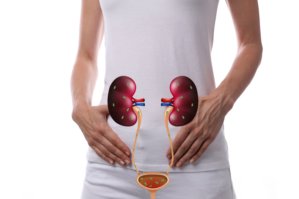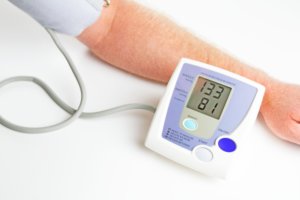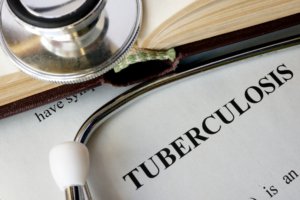afterLoad (456.3KB) (535μs)
afterInitialise (1.27MB) (19.54ms)
afterRoute (827.58KB) (7.27ms)
beforeRenderComponent com_content (35.16KB) (247μs)
Before Access::preloadComponents (all components) (187.41KB) (2.96ms)
After Access::preloadComponents (all components) (98.07KB) (2.64ms)
Before Access::preloadPermissions (com_content) (1.6KB) (13μs)
After Access::preloadPermissions (com_content) (3.31MB) (7.36ms)
Before Access::getAssetRules (id:62 name:com_content.category.20) (130.65KB) (100μs)
After Access::getAssetRules (id:62 name:com_content.category.20) (7.38KB) (46μs)
Before Access::getAssetRules (id:8 name:com_content) (51.77KB) (17.45ms)
After Access::getAssetRules (id:8 name:com_content) (6.17KB) (26μs)
afterRenderComponent com_content (1.52MB) (194ms)
afterDispatch (40.76KB) (4.77ms)
beforeRenderRawModule mod_articles_category (READ MORE...) (398.66KB) (14.25ms)
afterRenderRawModule mod_articles_category (READ MORE...) (70.5KB) (113ms)
beforeRenderRawModule mod_custom (BOOST YOUR IMMUNE DEFENSE) (6.45KB) (33μs)
afterRenderRawModule mod_custom (BOOST YOUR IMMUNE DEFENSE) (4.42KB) (271μs)
beforeRenderRawModule mod_articles_latest (Latest news) (976B) (15μs)
afterRenderRawModule mod_articles_latest (Latest news) (47.17KB) (120ms)
beforeRenderRawModule mod_tags_popular (Search) (2.09KB) (37μs)
afterRenderRawModule mod_tags_popular (Search) (31.62KB) (101ms)
beforeRenderRawModule mod_custom (the Vitamin and Mineral Guide) (960B) (30μs)
afterRenderRawModule mod_custom (the Vitamin and Mineral Guide) (1.02KB) (60μs)
beforeRenderRawModule mod_custom (Weight loss that works) (736B) (12μs)
afterRenderRawModule mod_custom (Weight loss that works) (928B) (23μs)
beforeRenderRawModule mod_custom (Get additionel and more detailed knowledge ) (752B) (9μs)
afterRenderRawModule mod_custom (Get additionel and more detailed knowledge ) (944B) (26μs)
beforeRenderRawModule mod_custom (Q10 goes by many names) (736B) (10μs)
afterRenderRawModule mod_custom (Q10 goes by many names) (928B) (18μs)
beforeRenderRawModule mod_custom (Check this before you buy a Q10 product) (752B) (9μs)
afterRenderRawModule mod_custom (Check this before you buy a Q10 product) (944B) (17μs)
beforeRenderRawModule mod_custom (Are you taking supplements) (736B) (9μs)
afterRenderRawModule mod_custom (Are you taking supplements) (2.28KB) (37μs)
beforeRenderRawModule mod_custom (Antiaging) (720B) (10μs)
afterRenderRawModule mod_custom (Antiaging) (912B) (19μs)
beforeRenderRawModule mod_custom (Exercise) (720B) (8μs)
afterRenderRawModule mod_custom (Exercise) (912B) (18μs)
beforeRenderRawModule mod_custom (Useful Links) (720B) (8μs)
afterRenderRawModule mod_custom (Useful Links) (1.02KB) (18μs)
beforeRenderModule mod_articles_category (READ MORE...) (332.2KB) (2.44ms)
afterRenderModule mod_articles_category (READ MORE...) (1.25KB) (68μs)
beforeRenderModule mod_custom (BOOST YOUR IMMUNE DEFENSE) (6.81KB) (15μs)
afterRenderModule mod_custom (BOOST YOUR IMMUNE DEFENSE) (1.28KB) (26μs)
beforeRenderModule mod_articles_latest (Latest news) (592B) (12μs)
afterRenderModule mod_articles_latest (Latest news) (1.27KB) (20μs)
beforeRenderModule mod_tags_popular (Search) (1.73KB) (12μs)
afterRenderModule mod_tags_popular (Search) (1.27KB) (20μs)
beforeRenderModule mod_custom (the Vitamin and Mineral Guide) (1.31KB) (9μs)
afterRenderModule mod_custom (the Vitamin and Mineral Guide) (1.28KB) (20μs)
beforeRenderModule mod_custom (Weight loss that works) (336B) (9μs)
afterRenderModule mod_custom (Weight loss that works) (1.27KB) (19μs)
beforeRenderModule mod_custom (Get additionel and more detailed knowledge ) (368B) (9μs)
afterRenderModule mod_custom (Get additionel and more detailed knowledge ) (1.3KB) (20μs)
beforeRenderModule mod_custom (Q10 goes by many names) (336B) (9μs)
afterRenderModule mod_custom (Q10 goes by many names) (1.27KB) (19μs)
beforeRenderModule mod_custom (Check this before you buy a Q10 product) (352B) (9μs)
afterRenderModule mod_custom (Check this before you buy a Q10 product) (1.28KB) (19μs)
beforeRenderModule mod_custom (Are you taking supplements) (352B) (8μs)
afterRenderModule mod_custom (Are you taking supplements) (1.28KB) (19μs)
beforeRenderModule mod_custom (Antiaging) (336B) (8μs)
afterRenderModule mod_custom (Antiaging) (1.27KB) (19μs)
beforeRenderModule mod_custom (Exercise) (336B) (9μs)
afterRenderModule mod_custom (Exercise) (1.25KB) (19μs)
beforeRenderModule mod_custom (Useful Links) (336B) (8μs)
afterRenderModule mod_custom (Useful Links) (3.77KB) (19μs)
beforeRenderRawModule mod_menu (Main Menu - English) (37.51KB) (762μs)
afterRenderRawModule mod_menu (Main Menu - English) (190.16KB) (1.53ms)
beforeRenderModule mod_menu (Main Menu - English) (720B) (4μs)
afterRenderModule mod_menu (Main Menu - English) (4.86KB) (66μs)
beforeRenderRawModule mod_languages (Sprogskift) (3.94KB) (22μs)
afterRenderRawModule mod_languages (Sprogskift) (21.83KB) (1.71ms)
beforeRenderModule mod_languages (Sprogskift) (720B) (5μs)
afterRenderModule mod_languages (Sprogskift) (5.31KB) (22μs)
beforeRenderRawModule mod_finder () (6.34KB) (11μs)
afterRenderRawModule mod_finder () (68.96KB) (1.65ms)
beforeRenderModule mod_finder () (704B) (5μs)
afterRenderModule mod_finder () (3.29KB) (33μs)
beforeRenderRawModule mod_custom () (6.62KB) (146μs)
afterRenderRawModule mod_custom () (26.52KB) (930μs)
beforeRenderModule mod_custom () (704B) (6μs)
afterRenderModule mod_custom () (1.23KB) (65μs)
beforeRenderRawModule mod_menu (Main Menu - English) (5.07KB) (106μs)
afterRenderRawModule mod_menu (Main Menu - English) (6.3KB) (799μs)
beforeRenderModule mod_menu (Main Menu - English) (720B) (3μs)
afterRenderModule mod_menu (Main Menu - English) (1.25KB) (46μs)
beforeRenderRawModule mod_languages (Sprogskift Mobil) (912B) (16μs)
afterRenderRawModule mod_languages (Sprogskift Mobil) (3.89KB) (665μs)
beforeRenderModule mod_languages (Sprogskift Mobil) (720B) (3μs)
afterRenderModule mod_languages (Sprogskift Mobil) (1.27KB) (31μs)
beforeRenderRawModule mod_finder () (2.3KB) (9μs)
afterRenderRawModule mod_finder () (6.29KB) (539μs)
beforeRenderModule mod_finder () (704B) (4μs)
afterRenderModule mod_finder () (1.23KB) (41μs)
beforeRenderRawModule mod_custom () (8.66KB) (181μs)
afterRenderRawModule mod_custom () (904B) (135μs)
beforeRenderModule mod_custom () (704B) (3μs)
afterRenderModule mod_custom () (2.43KB) (38μs)
beforeRenderRawModule mod_custom () (688B) (85μs)
afterRenderRawModule mod_custom () (896B) (105μs)
beforeRenderModule mod_custom () (704B) (3μs)
afterRenderModule mod_custom () (2.71KB) (22μs)
afterRender (299.8KB) (6.08ms)
| 1 x afterRenderComponent com_content (1.52MB) (31.02%) | 194.01ms |
| 1 x afterRenderRawModule mod_articles_latest (Latest news) (47.17KB) (19.14%) | 119.75ms |
| 1 x afterRenderRawModule mod_articles_category (READ MORE...) (70.5KB) (18.14%) | 113.49ms |
| 1 x afterRenderRawModule mod_tags_popular (Search) (31.62KB) (16.18%) | 101.19ms |
| 1 x afterInitialise (1.27MB) (3.12%) | 19.54ms |
| 1 x Before Access::getAssetRules (id:8 name:com_content) (51.77KB) (2.79%) | 17.45ms |
| 1 x beforeRenderRawModule mod_articles_category (READ MORE...) (398.66KB) (2.28%) | 14.25ms |
| 1 x After Access::preloadPermissions (com_content) (3.31MB) (1.18%) | 7.36ms |
| 1 x afterRoute (827.58KB) (1.16%) | 7.27ms |
| 1 x afterRender (299.8KB) (0.97%) | 6.08ms |
| 1 x afterDispatch (40.76KB) (0.76%) | 4.77ms |
| 1 x Before Access::preloadComponents (all components) (187.41KB) (0.47%) | 2.96ms |
| 1 x After Access::preloadComponents (all components) (98.07KB) (0.42%) | 2.64ms |
| 1 x beforeRenderModule mod_articles_category (READ MORE...) (332.2KB) (0.39%) | 2.44ms |
| 1 x afterRenderRawModule mod_languages (Sprogskift) (21.83KB) (0.27%) | 1.71ms |
| 1 x afterRenderRawModule mod_finder () (68.96KB) (0.26%) | 1.65ms |
| 1 x afterRenderRawModule mod_menu (Main Menu - English) (190.16KB) (0.24%) | 1.53ms |
| 1 x afterRenderRawModule mod_custom () (26.52KB) (0.15%) | 930μs |
| 1 x afterRenderRawModule mod_menu (Main Menu - English) (6.3KB) (0.13%) | 799μs |
| 1 x beforeRenderRawModule mod_menu (Main Menu - English) (37.51KB) (0.12%) | 762μs |
| 1 x afterRenderRawModule mod_languages (Sprogskift Mobil) (3.89KB) (0.11%) | 665μs |
| 1 x afterRenderRawModule mod_finder () (6.29KB) (0.09%) | 539μs |
| 1 x afterLoad (456.3KB) (0.09%) | 535μs |
| 1 x afterRenderRawModule mod_custom (BOOST YOUR IMMUNE DEFENSE) (4.42KB) (0.04%) | 271μs |
| 1 x beforeRenderComponent com_content (35.16KB) (0.04%) | 247μs |
| 1 x beforeRenderRawModule mod_custom () (8.66KB) (0.03%) | 181μs |
| 1 x beforeRenderRawModule mod_custom () (6.62KB) (0.02%) | 146μs |
| 1 x afterRenderRawModule mod_custom () (904B) (0.02%) | 135μs |
| 1 x beforeRenderRawModule mod_menu (Main Menu - English) (5.07KB) (0.02%) | 106μs |
| 1 x afterRenderRawModule mod_custom () (896B) (0.02%) | 105μs |
| 1 x Before Access::getAssetRules (id:62 name:com_content.category.20) (130.65KB) (0.02%) | 100μs |
| 1 x beforeRenderRawModule mod_custom () (688B) (0.01%) | 85μs |
| 1 x afterRenderModule mod_articles_category (READ MORE...) (1.25KB) (0.01%) | 68μs |
| 1 x afterRenderModule mod_menu (Main Menu - English) (4.86KB) (0.01%) | 66μs |
| 1 x afterRenderModule mod_custom () (1.23KB) (0.01%) | 65μs |
| 1 x afterRenderRawModule mod_custom (the Vitamin and Mineral Guide) (1.02KB) (0.01%) | 60μs |
| 1 x After Access::getAssetRules (id:62 name:com_content.category.20) (7.38KB) (0.01%) | 46μs |
| 1 x afterRenderModule mod_menu (Main Menu - English) (1.25KB) (0.01%) | 46μs |
| 1 x afterRenderModule mod_finder () (1.23KB) (0.01%) | 41μs |
| 1 x afterRenderModule mod_custom () (2.43KB) (0.01%) | 38μs |
| 1 x afterRenderRawModule mod_custom (Are you taking supplements) (2.28KB) (0.01%) | 37μs |
| 1 x beforeRenderRawModule mod_tags_popular (Search) (2.09KB) (0.01%) | 37μs |
| 1 x beforeRenderRawModule mod_custom (BOOST YOUR IMMUNE DEFENSE) (6.45KB) (0.01%) | 33μs |
| 1 x afterRenderModule mod_finder () (3.29KB) (0.01%) | 33μs |
| 1 x afterRenderModule mod_languages (Sprogskift Mobil) (1.27KB) (0%) | 31μs |
| 1 x beforeRenderRawModule mod_custom (the Vitamin and Mineral Guide) (960B) (0%) | 30μs |
| 1 x After Access::getAssetRules (id:8 name:com_content) (6.17KB) (0%) | 26μs |
| 1 x afterRenderRawModule mod_custom (Get additionel and more detailed knowledge ) (944B) (0%) | 26μs |
| 1 x afterRenderModule mod_custom (BOOST YOUR IMMUNE DEFENSE) (1.28KB) (0%) | 26μs |
| 1 x afterRenderRawModule mod_custom (Weight loss that works) (928B) (0%) | 23μs |
| 1 x afterRenderModule mod_custom () (2.71KB) (0%) | 22μs |
| 1 x beforeRenderRawModule mod_languages (Sprogskift) (3.94KB) (0%) | 22μs |
| 1 x afterRenderModule mod_languages (Sprogskift) (5.31KB) (0%) | 22μs |
| 1 x afterRenderModule mod_articles_latest (Latest news) (1.27KB) (0%) | 20μs |
| 1 x afterRenderModule mod_custom (the Vitamin and Mineral Guide) (1.28KB) (0%) | 20μs |
| 1 x afterRenderModule mod_custom (Get additionel and more detailed knowledge ) (1.3KB) (0%) | 20μs |
| 1 x afterRenderModule mod_tags_popular (Search) (1.27KB) (0%) | 20μs |
| 1 x afterRenderModule mod_custom (Q10 goes by many names) (1.27KB) (0%) | 19μs |
| 1 x afterRenderModule mod_custom (Check this before you buy a Q10 product) (1.28KB) (0%) | 19μs |
| 1 x afterRenderModule mod_custom (Antiaging) (1.27KB) (0%) | 19μs |
| 1 x afterRenderModule mod_custom (Exercise) (1.25KB) (0%) | 19μs |
| 1 x afterRenderModule mod_custom (Useful Links) (3.77KB) (0%) | 19μs |
| 1 x afterRenderRawModule mod_custom (Antiaging) (912B) (0%) | 19μs |
| 1 x afterRenderModule mod_custom (Weight loss that works) (1.27KB) (0%) | 19μs |
| 1 x afterRenderModule mod_custom (Are you taking supplements) (1.28KB) (0%) | 19μs |
| 1 x afterRenderRawModule mod_custom (Q10 goes by many names) (928B) (0%) | 18μs |
| 1 x afterRenderRawModule mod_custom (Exercise) (912B) (0%) | 18μs |
| 1 x afterRenderRawModule mod_custom (Useful Links) (1.02KB) (0%) | 18μs |
| 1 x afterRenderRawModule mod_custom (Check this before you buy a Q10 product) (944B) (0%) | 17μs |
| 1 x beforeRenderRawModule mod_languages (Sprogskift Mobil) (912B) (0%) | 16μs |
| 1 x beforeRenderRawModule mod_articles_latest (Latest news) (976B) (0%) | 15μs |
| 1 x beforeRenderModule mod_custom (BOOST YOUR IMMUNE DEFENSE) (6.81KB) (0%) | 15μs |
| 1 x Before Access::preloadPermissions (com_content) (1.6KB) (0%) | 13μs |
| 1 x beforeRenderModule mod_tags_popular (Search) (1.73KB) (0%) | 12μs |
| 1 x beforeRenderRawModule mod_custom (Weight loss that works) (736B) (0%) | 12μs |
| 1 x beforeRenderModule mod_articles_latest (Latest news) (592B) (0%) | 12μs |
| 3 x beforeRenderModule mod_custom () (704B) (0%) | 12μs |
| 1 x beforeRenderRawModule mod_finder () (6.34KB) (0%) | 11μs |
| 1 x beforeRenderRawModule mod_custom (Q10 goes by many names) (736B) (0%) | 10μs |
| 1 x beforeRenderRawModule mod_custom (Antiaging) (720B) (0%) | 10μs |
| 1 x beforeRenderRawModule mod_custom (Get additionel and more detailed knowledge ) (752B) (0%) | 9μs |
| 1 x beforeRenderModule mod_custom (the Vitamin and Mineral Guide) (1.31KB) (0%) | 9μs |
| 1 x beforeRenderModule mod_custom (Weight loss that works) (336B) (0%) | 9μs |
| 1 x beforeRenderModule mod_custom (Get additionel and more detailed knowledge ) (368B) (0%) | 9μs |
| 1 x beforeRenderModule mod_custom (Q10 goes by many names) (336B) (0%) | 9μs |
| 1 x beforeRenderRawModule mod_finder () (2.3KB) (0%) | 9μs |
| 1 x beforeRenderRawModule mod_custom (Check this before you buy a Q10 product) (752B) (0%) | 9μs |
| 1 x beforeRenderRawModule mod_custom (Are you taking supplements) (736B) (0%) | 9μs |
| 1 x beforeRenderModule mod_custom (Check this before you buy a Q10 product) (352B) (0%) | 9μs |
| 1 x beforeRenderModule mod_custom (Exercise) (336B) (0%) | 9μs |
| 2 x beforeRenderModule mod_finder () (704B) (0%) | 9μs |
| 1 x beforeRenderRawModule mod_custom (Exercise) (720B) (0%) | 8μs |
| 1 x beforeRenderRawModule mod_custom (Useful Links) (720B) (0%) | 8μs |
| 1 x beforeRenderModule mod_custom (Are you taking supplements) (352B) (0%) | 8μs |
| 1 x beforeRenderModule mod_custom (Antiaging) (336B) (0%) | 8μs |
| 1 x beforeRenderModule mod_custom (Useful Links) (336B) (0%) | 8μs |
| 2 x beforeRenderModule mod_menu (Main Menu - English) (720B) (0%) | 7μs |
| 1 x beforeRenderModule mod_languages (Sprogskift) (720B) (0%) | 5μs |
| 1 x beforeRenderModule mod_languages (Sprogskift Mobil) (720B) (0%) | 3μs |
 Our ability to absorb zinc is reduced with age, and many older people lack zinc, even though there is plenty of zinc in the diet they eat. The trace element is involved in over 1,000 enzyme processes and is also an important antioxidant that protects our cells. Even minor zinc deficiencies can speed up ageing processes and contribute to skin and hair problems, infections such as bladder infections, chronic inflammation, elevated blood pressure, cancer, and other diseases. People with unhealthy diets, vegetarians, vegans, and older people are at particularly vulnerable. Certain types of medicine that many seniors take can also increase the risk of a zinc deficiency.
Our ability to absorb zinc is reduced with age, and many older people lack zinc, even though there is plenty of zinc in the diet they eat. The trace element is involved in over 1,000 enzyme processes and is also an important antioxidant that protects our cells. Even minor zinc deficiencies can speed up ageing processes and contribute to skin and hair problems, infections such as bladder infections, chronic inflammation, elevated blood pressure, cancer, and other diseases. People with unhealthy diets, vegetarians, vegans, and older people are at particularly vulnerable. Certain types of medicine that many seniors take can also increase the risk of a zinc deficiency.







 According to a new study from Johns Hopkins University in the United States,
According to a new study from Johns Hopkins University in the United States,  Everyone is talking about the climate, and meat has lost popularity for a number of reasons. But let us keep our heads clear on the facts. There is a big difference between CO2 emissions, animal welfare, and the quality or quantity of meat on one hand and the nutritional aspects of meat on the other hand. Humans have been eating meat (including fish) for around two million years, and animal food sources have contributed to our large brains and development in general. Nonetheless, more and more people choose to become vegetarians, and the trend is especially popular among women. This gives rise for concern, as lack of protein, vitamin D, vitamin B12, iodine, selenium, iron, zinc and omega-3 fatty acids not only impairs fertility but even increases the risk of metabolic disorders, serious growth disturbances in children and a lot more. Some of these symptoms are insidious and therefore difficult to link to the diet.
Everyone is talking about the climate, and meat has lost popularity for a number of reasons. But let us keep our heads clear on the facts. There is a big difference between CO2 emissions, animal welfare, and the quality or quantity of meat on one hand and the nutritional aspects of meat on the other hand. Humans have been eating meat (including fish) for around two million years, and animal food sources have contributed to our large brains and development in general. Nonetheless, more and more people choose to become vegetarians, and the trend is especially popular among women. This gives rise for concern, as lack of protein, vitamin D, vitamin B12, iodine, selenium, iron, zinc and omega-3 fatty acids not only impairs fertility but even increases the risk of metabolic disorders, serious growth disturbances in children and a lot more. Some of these symptoms are insidious and therefore difficult to link to the diet. Type 2 diabetes is spreading like a bushfire, and taking the diabetes drug metformin increases the risk of
Type 2 diabetes is spreading like a bushfire, and taking the diabetes drug metformin increases the risk of  Bladder infection is one of the most widespread bacterial infections. It can lead to serious complications such as kidney infections and blood poisoning. A team of scientists from University of Queensland in Australia has discovered new details about
Bladder infection is one of the most widespread bacterial infections. It can lead to serious complications such as kidney infections and blood poisoning. A team of scientists from University of Queensland in Australia has discovered new details about 

 Lack of
Lack of  Antioxidants such as
Antioxidants such as  Elevated blood pressure causes more premature deaths worldwide than any other factor. Blood pressure is regulated by a number of things such as diet and lifestyle. Science has also discovered that low blood levels of
Elevated blood pressure causes more premature deaths worldwide than any other factor. Blood pressure is regulated by a number of things such as diet and lifestyle. Science has also discovered that low blood levels of  Tuberculosis (or TB) is one of most widespread diseases in the world. It claims millions of human lives every year, especially in underdeveloped countries. A team of scientists from Queen Mary University in London has discovered that
Tuberculosis (or TB) is one of most widespread diseases in the world. It claims millions of human lives every year, especially in underdeveloped countries. A team of scientists from Queen Mary University in London has discovered that  Stress is associated with a host of physical and psychological health problems such as headache, fatigue, tension, insomnia, sore throat, constipation, flu-like symptoms, depression, and anxiety. Stress is not all in your mind. It is a physiological condition that affects the whole body and increases your need for specific nutrients. Earlier studies carried out with humans and animals have shown that supplements of
Stress is associated with a host of physical and psychological health problems such as headache, fatigue, tension, insomnia, sore throat, constipation, flu-like symptoms, depression, and anxiety. Stress is not all in your mind. It is a physiological condition that affects the whole body and increases your need for specific nutrients. Earlier studies carried out with humans and animals have shown that supplements of  All cells in the body depend on
All cells in the body depend on